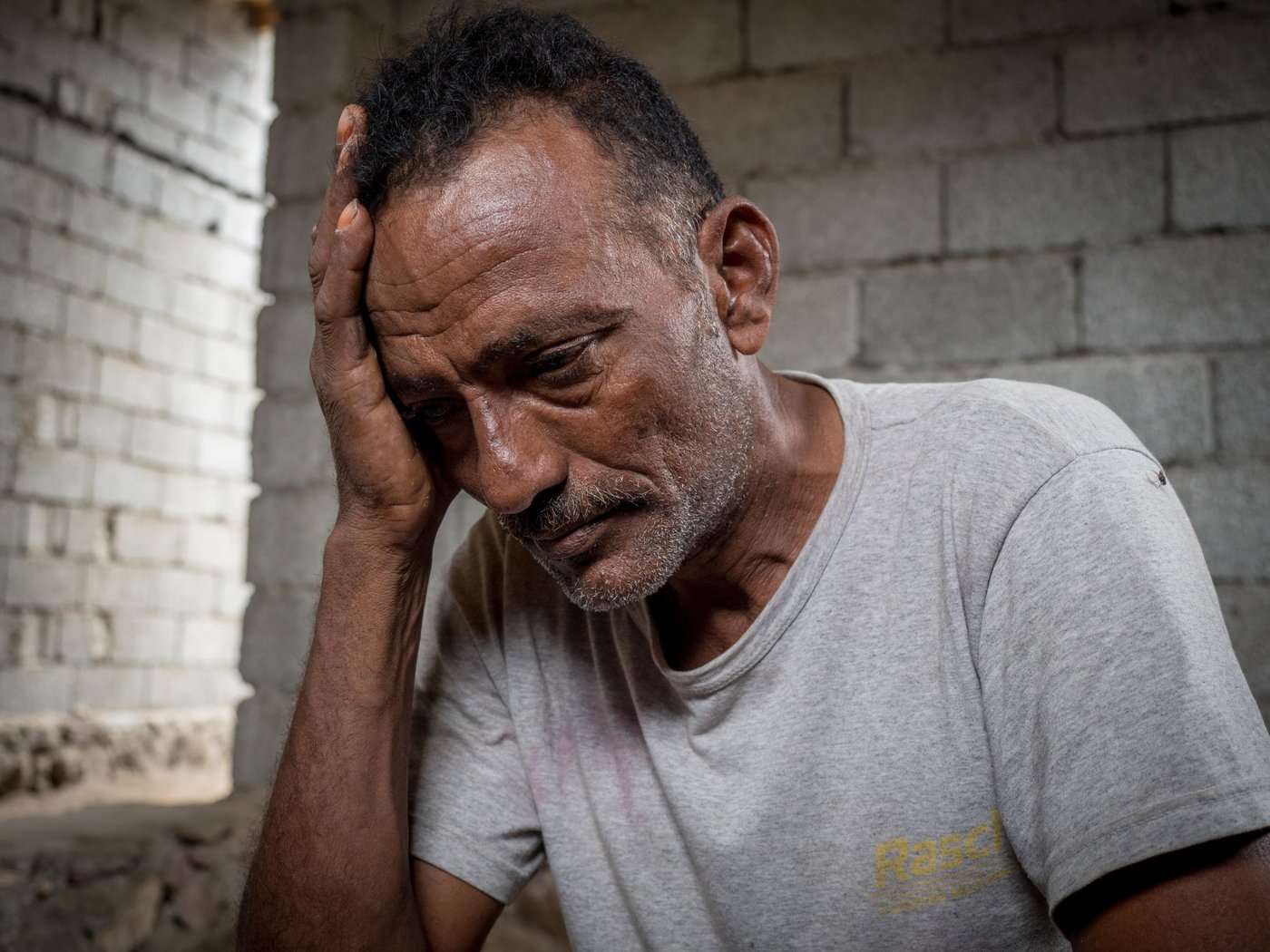Allerede før krigen var livet vanskelig for mange jemenitter, men de siste fem årene har utviklet seg til en katastrofe for millioner av mennesker. Mange har mistet inntektskilden og sliter med å skaffe mat til familien. Prisene fortsetter å stige, mens statsansatte i nordlige deler av landet ikke har fått lønn på fire år.
Kampene har ført til at så mange som 3,65 millioner jemenitter har flyktet fra hjemmene sine, og blitt tvunget ut i ytterligere fattigdom og fortvilelse. På toppen av dette har Jemen opplevd et av verdens verste kolerautbrudd, noe som ble forsterket av kollapsen i helsesystemet.
Historiene vi presenterer her, viser hvordan vanlige jemenitter har mistet alt, fra slektninger og hjem til inntektskilde, i løpet av de siste fem årene.
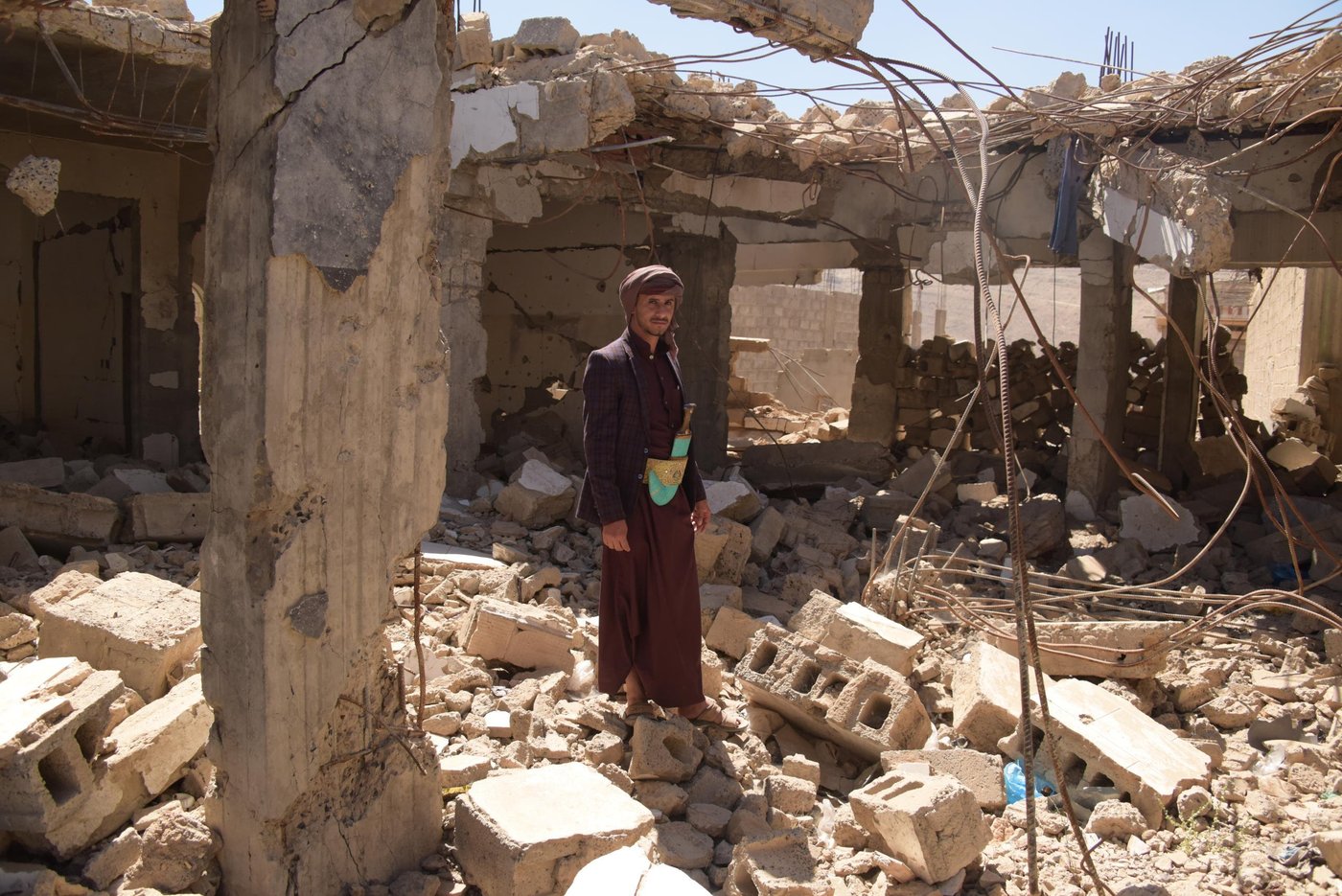
Mohammed Abdullah Al Tamerah mistet to av døtrene sine, moren, broren og to søstre i et luftangrep på huset hans i Amran.
– Dette hadde jeg ikke trodd skulle komme til å skje. Det er fryktelig, men aggresjonen tar ingen hensyn… den dreper… som du ser er de fleste som blir drept kvinner og barn…
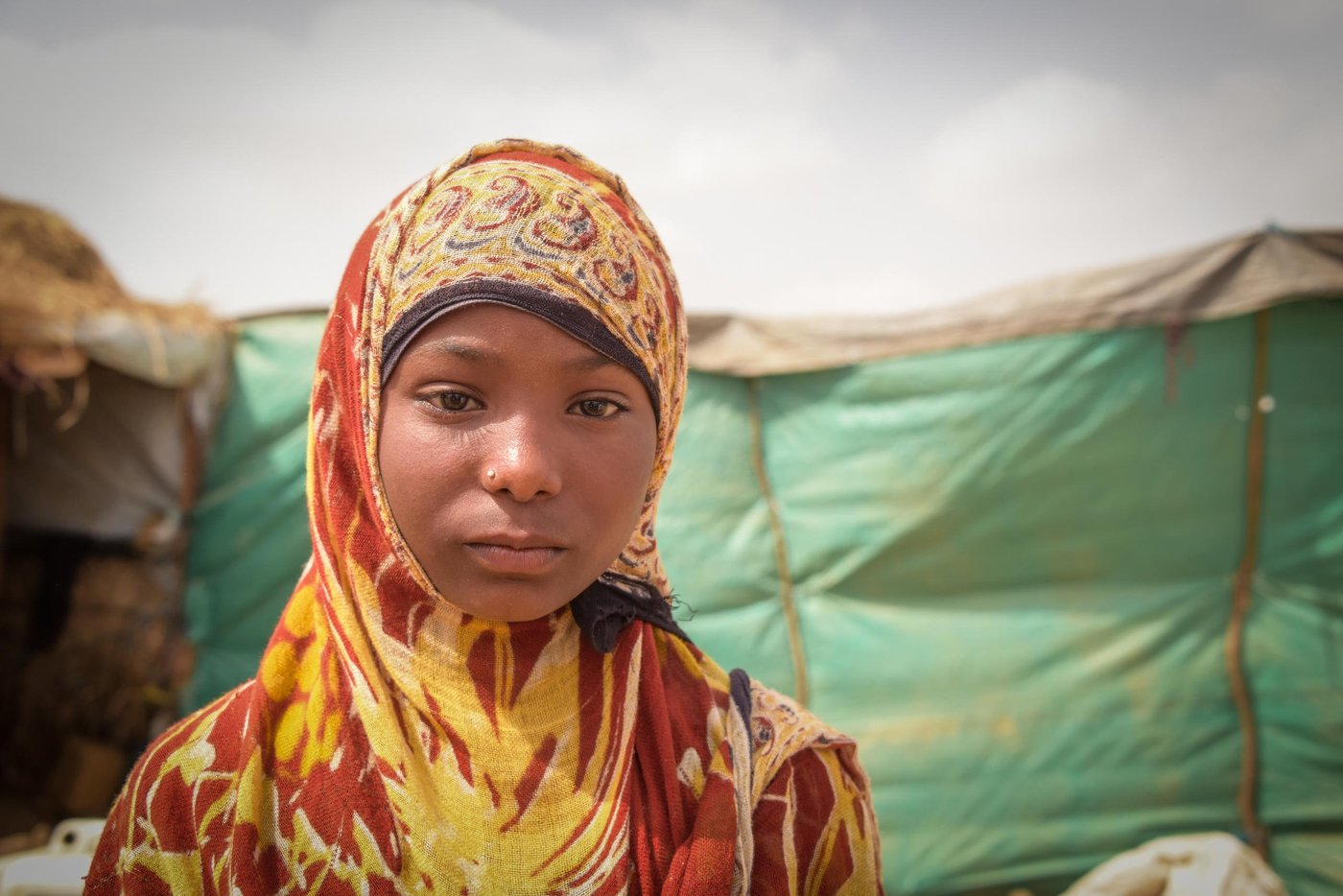
Haifa Ameen er ti år gammel. Hun har måttet flykte med familien flere ganger på grunn av kampene. Hun bor for tiden i en leir i Abs-distriktet.
– Jeg pleide å gå på skole. Men nå gjør jeg ikke det lenger. Vi har ikke råd. Det var gøy å gå på skolen. Jeg følte meg smart. Jeg lærte å lese, men hva kan jeg gjøre med det nå? Jeg ville bli lærer. Jeg har lyst til å be dem om å stoppe krigen. Det som skjer med oss er så urettferdig, urettferdig for barna og for alle. Vi hadde elsket å leve akkurat sånn som andre barn utenfor Jemen gjør; leve i trygghet.
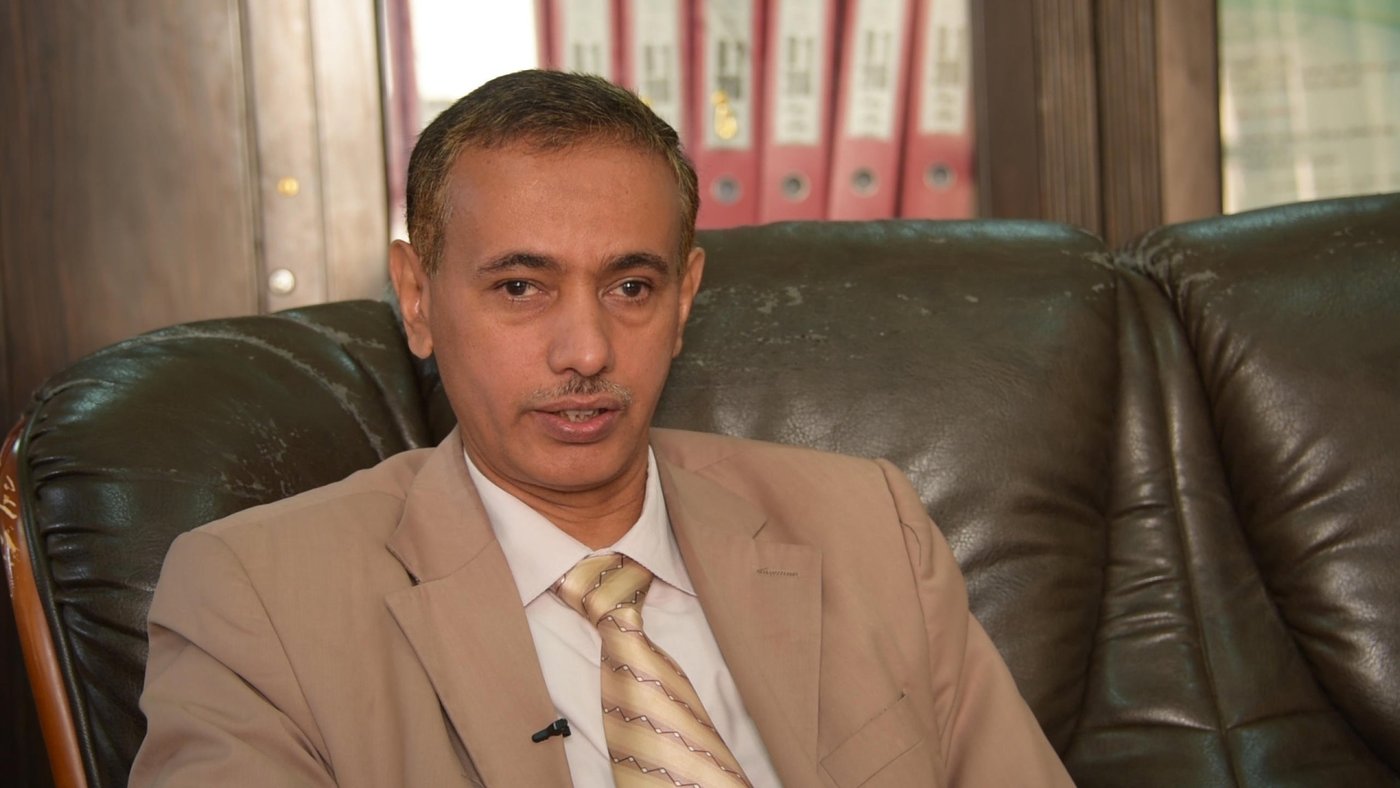
Lege Hamoud Hodeish er pediatrisk onkolog ved kreftsykehuset i Sana. Han beskriver hvordan stengingen av flyplassen ved Sana påvirker kreftsyke barn og helsevesenet.
– Senteret står ovenfor mange problemer, blant annet mangel på medisiner, helsepersonell og behandlingstyper. Situasjonen er slik nå at vi ikke lenger kan behandle pasienter som trenger cellegift. Det er veldig vanskelig å importere medisiner. Strålebehandlingsmaskiner har allerede kollapset. Hovedproblemet er de stengte grensene og flyplassen, og å finne en den enkleste måten å få importert det vi trenger.
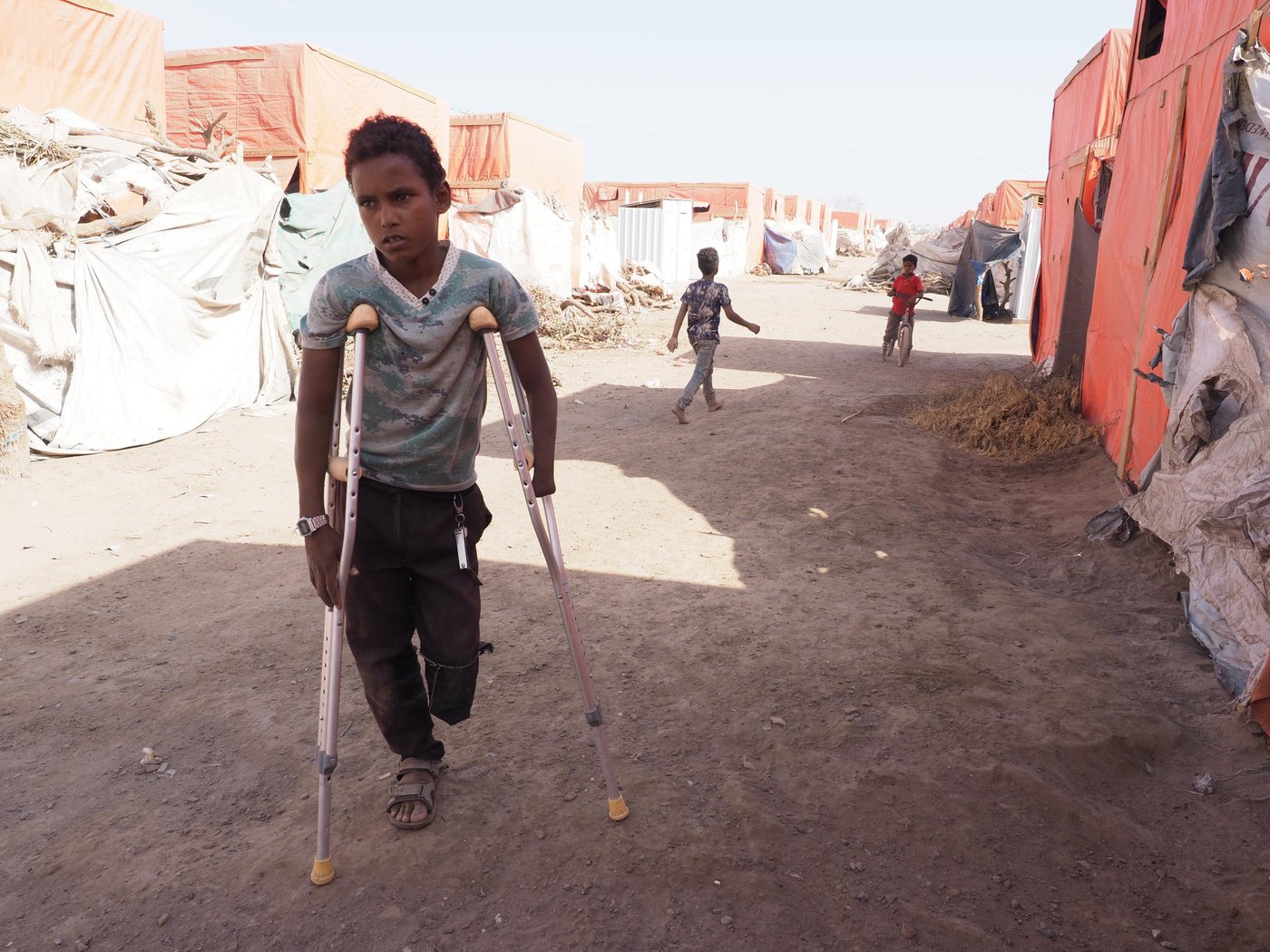
Salah er en gutt på 13 år som ble drevet på flukt fra hjemstedet sitt. Han flyktet fra Taiz by på grunn av krigen, og han bor nå i Al-Mishqafa leir i Lahj. En dag mens han var ute og gjette sauene sammen med to jenter han er i slekt med, fant noe de trodde var restene av en landmine som de begynte å leke med. Salah sparket borti den. Så ble alt svart.
– Jeg visste ikke at den kom til å eksplodere, sier han.
Salah ble skadet i magen, og måtte amputere en hånd og et bein. En av kusinene mistet en hånd. Den andre døde.
Salah savner hjemmet sitt. Han savner å leke med vennene sine. Han savner å spille fotball og å sykle.
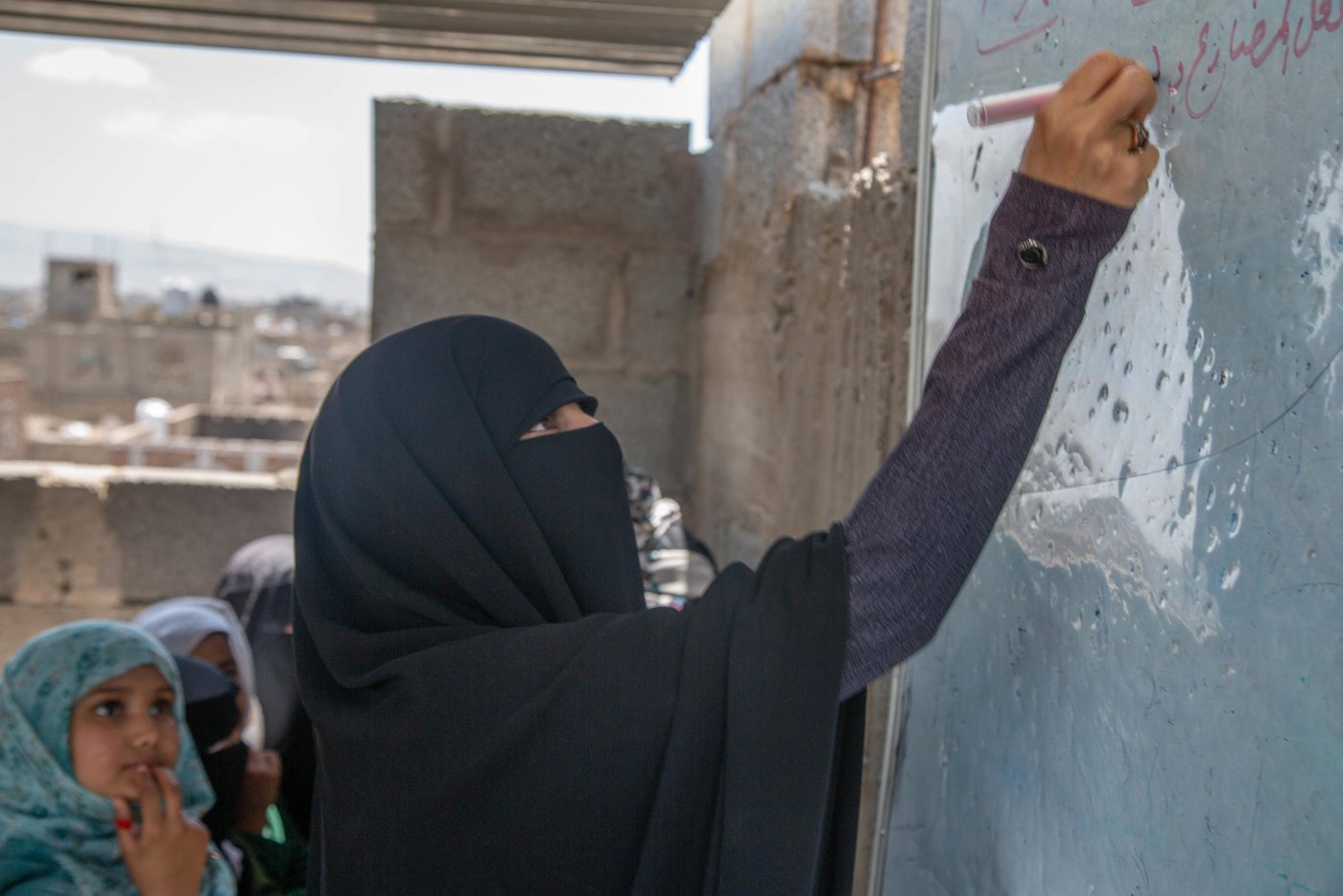
Rahma Ahmed er en 32 år gammel lærer ved Al-Mustaqbal skole i Sana – Bani Al-Harith distrikt. Verdenen hennes ble snudd på hodet da lønnen hennes plutselig ble stoppet for tre år siden. Før konflikten i Jemen begynte i 2015, hadde hun et godt liv i den vestlige byen Sana, med mann og sønn. Nå underviser hun gratis og selger plansjer med pedagogisk innhold som brukes til undervisning.
– Før krigen fikk vi en vanlig lønn. Den var ganske lav, men det samme var prisene. Nå låner jeg noen ganger penger for å kunne gi sønnen min en sandwich til frokost og kjøpe skrivesaker til ham. Motivasjonen min for å fortsette å undervise ved skolen er å utdanne og bygge neste generasjon.
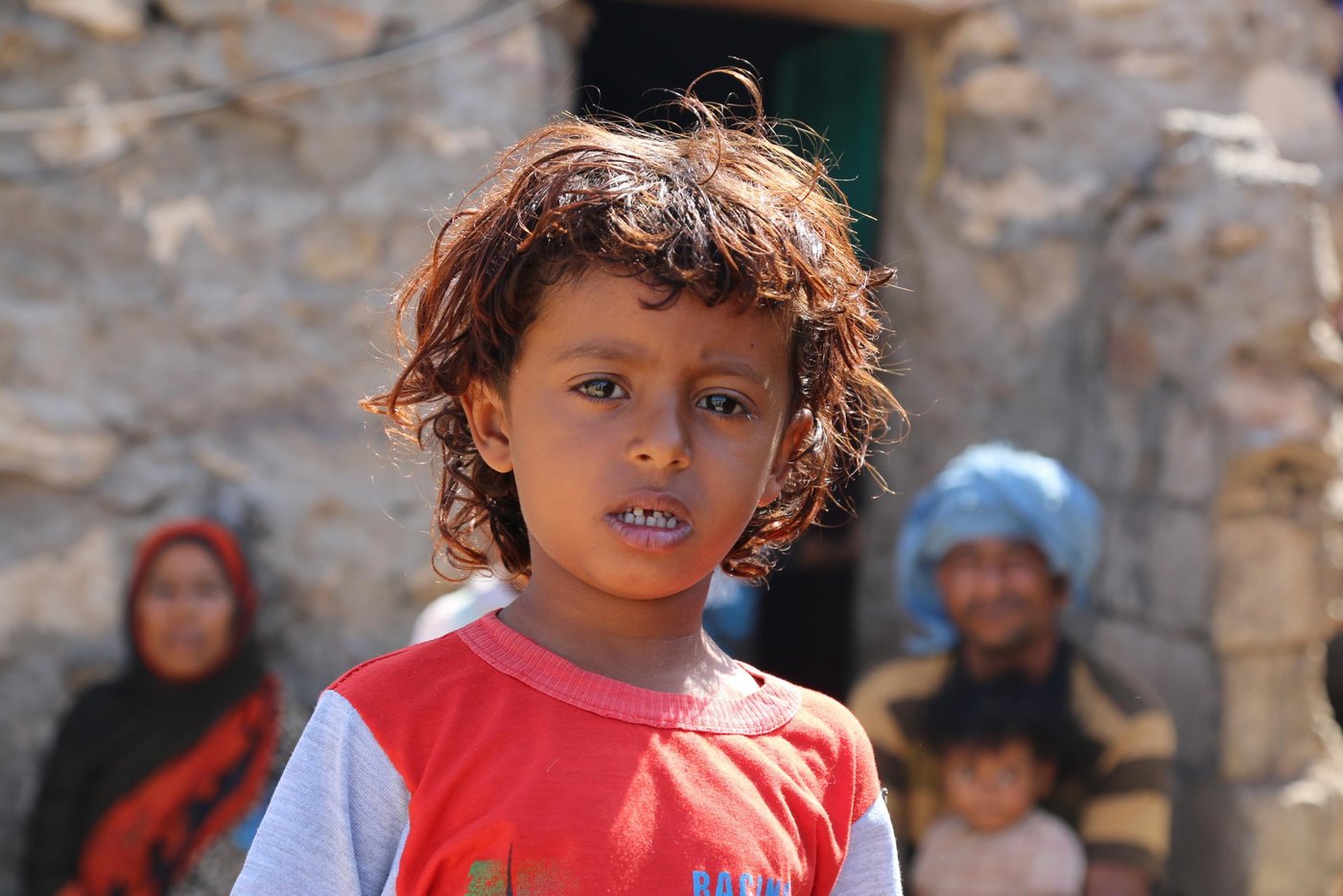
Misha’al Salah (4) og familie ble drevet på flukt og bor nå i et telt i Taiz. Han hører at de forteller om landsbyen hans, men han husker ingenting fordi familien flyktet da han bare var ett år gammel.
– Folk her sier at vi har et hus i landsbyen vår. Men jeg husker ikke det. Jeg håper at vi kan bo i huset vårt en dag.

Ghaleb Mohammed Al-Faqeeh er i slutten av 50-årene, og far til ti. Han var bonde. I tillegg eide Ghaleb en bil og en motorsykkel, som han pleide å bruke for å frakte varer fra byen til innbyggerne i landsbyen. Men da krigen nådde landsbyen, mistet han alt:
– Konen og sønnen min dro tilbake til landsbyen for å hente noen av eiendelene våre. Men de gikk på en landmine som eksploderte og drepte begge to. Jeg mistet ikke bare huset og bilen, men alt håpet mitt forsvant da kona og sønnen min døde.

Thawreyah (28) har ikke laget mat på gassovn siden hun flyktet fra huset sitt i 2017.
– Som alle de andre kvinnene i denne leiren, henter jeg ved fra fjellet for å bruke til matlagningen. Hvis ikke, blir vi gående sultne. Vi har slitt i denne leiren, og barna våre lider også. Om morgenen går de på skolen, og så går de for å hente ved og vann.

Geyad Ahmed (6) går i første klasse. Han går på skolen om morgenen. Rett etter skoletid går han til fjellet for å hente ved.
– Jeg sanker ved hver dag for å hjelpe moren min slik at hun kan lage mat til oss.

Mohammed Al Hawsali er i 40-årene. Tidligere arbeidet han som landmegler i Hodeida by. Før konflikten eskalerte, eide han tre hus.
– Skuddene kom fra alle kanter, og krigsflyene svevde over oss. Flyangrepene rettet seg mot et hus som lå ved siden av mine tre hus. To av eiendommene mine ble fullstendig ødelagt og kan ikke lenger leies ut, den tredje eiendommen ble hardt skadet. De husene var alt jeg hadde. De var mitt livsverk.

Aboos Faisal (13) ble drevet på flukt fra Hodeifah til Amran. For å skaffe inntekter til familien, samler hun plastflasker og selger dem til resirkuleringsfabrikker.
– Drømmen min er å lære å lese og skrive, men faren min makter ikke å skaffe nok mat til oss. Jeg må arbeide hver dag for å hjelpe familien min. Vi må prioritere mat. Alle søsknene mine jobber som meg. Det går ikke med skolearbeid.


